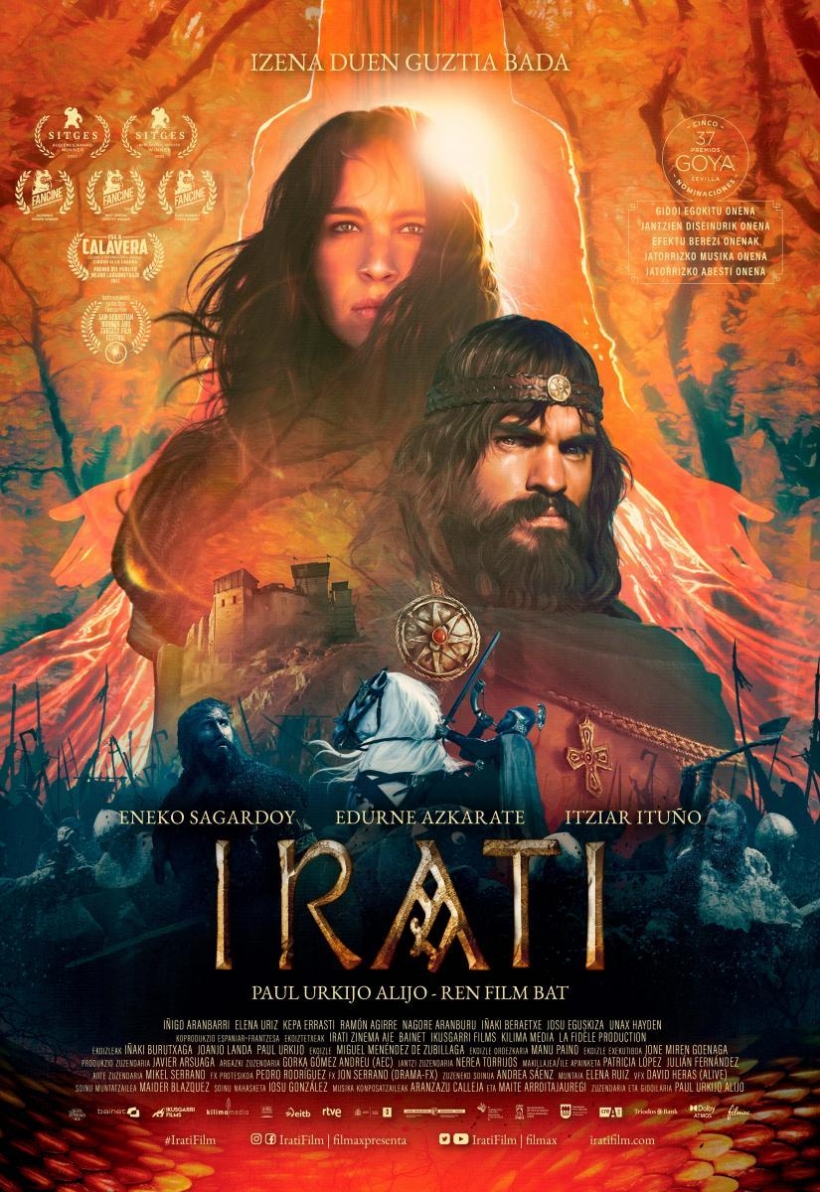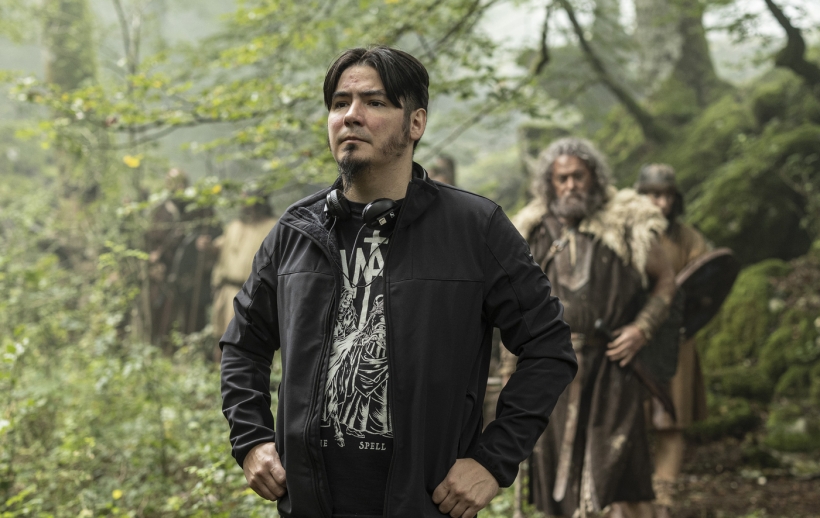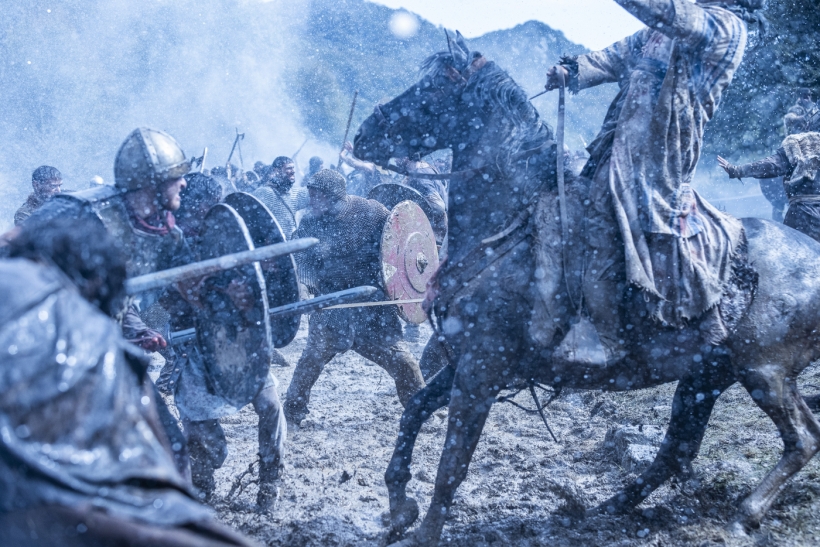´IRATI´: Basque mythology, history and Euskara
2023/02/28
Euskara. Kultura. Mundura.
´Irati´, a film by Paul Urkijo, was released in cinemas on Friday February 24th. ‘Irati´ is a historical adventure-fantasy movie that blends Basque legends, history and language. It is a story about the clash of religion between Christian and Muslim warriors, while at the same time, fusing Basque popular imaginary and mythology. The budget of ´Irati´ amounts to 4,3 million euros, making it the largest Basque production in history.
‘Irati’ is set in the 8th century, at a time when Christianity was spreading across Europe and pagan beliefs were fading. When Charlemagne´s army crosses the Pyrenees, the leader of the valley asks the ancestral Basque goddess Mari for help to protect his people and manages to defeat the enemy in the battle of Roncesvalles in exchange for his life. Before dying, he makes his son Eneko promise to protect and guide his people in the new era. Years later, Eneko fulfills his promise with a mission: to recover his father´s body buried next to Charlemagne´s treasure. Despite his Christian faith, he will need the help of a mysterious local pagan woman called Irati. The two of them journey deep into a strange and inhospitable forest, where everything that has a name exists.
‘Irati´ features characters from Basque mythology such as ´Mari´ (personification of Mother Nature, mother of all and highest divinity), ´Aker´ (spirit in the form of a goat, guardian of animals), ´Sugaar´ (husband of Mari and deity in the form of a snake), ‘Lamiak´ (women with bird-like feet, mermaids or nymphs), ´Gentilak´ (giant pre-Christianity inhabitants of the Basque Country), ´Basajaun´ (protector of the forest), ´Zezengorri´ (bull-shaped god, protector of Mari´s dwelling), ´Tartalo´ (cyclops who lives in caves)... These, among others, are the characters Urkijo uses to introduce us to Basque mythology, highlighting the relationship between Basque society, nature and ancient beliefs.

Paul Urkijo
Basque director and screenwriter, Urkijo is passionate about the fantasy genre and mythology, especially the legends of the Basque Country. His filmography includes works on Basque mythology such as ‘Errementari: The Blacksmith and the Devil’ (2017), the short film ´Dar-Dar´ (2020) and his latest work, ´Irati´ (2023).

An epic history of the Basque Country
Besides being based on mythology, ´Irati´ brings a number of characters and events from 8th century Basque history to the big screen. Eneko Aritza, said to be the first king of Pamplona, is one of the main characters in ´Irati´. The film introduces us to Eneko before he was king. The movie opens with a battle between the Basques and the Franks known as the Battle of Roncesvalles, in which Charlemagne was defeated after his army set fire to Pamplona.

A story that must be told in Basque
The film combines Basque mythology and history, using Euskara, the language of the Basque Country, as it was spoken in the 13th century. It is often said to be the oldest language in Europe and bears no resemblance to other Indo-European languages.
In keeping with the film’s historical setting, Urkijo filmed ‘Irati’ in Basque, in a combination of 13th century and modern Euskara. The myths and legends that he highlights in the film are linked to the Basque language and this is how he wants to transmit them to the audience. ‘Irati´ uses the Basque names of goddesses, mythological beings, and placenames. Urkijo wanted the film to reflect the Basque that would have been spoken at that time.

Everything that has a name, is
So says the film´s slogan and centrepiece of the soundtrack. With ´Irati´, Paul Urkijo wants to immortalise the Basque tales, stories, myths and culture because everything that has a name, is.
An exceptional run at festivals
‘Irati´ is the greatest Basque production ever made and is now proving its popularity. The film has already had a successful run at several festivals prior to its release. It was screened for the first time at the Sitges Film Festival, where it won the People’s Choice Award in the Sitges Official Selection and the Award for Best Special, Visual or Makeup Effects. Urkijo´s second feature film received five nominations at the 2023 Goya’s, Spain’s annual film awards (Best Adapted Screenplay, Best Original Score, Best Original Song, Best Costume Design and Best Special Effects). It has received many other awards and mentions at different festivals, the last being the Audience Award at the Basque Film Week. ‘Irati´ was released in cinemas on 24 February.




